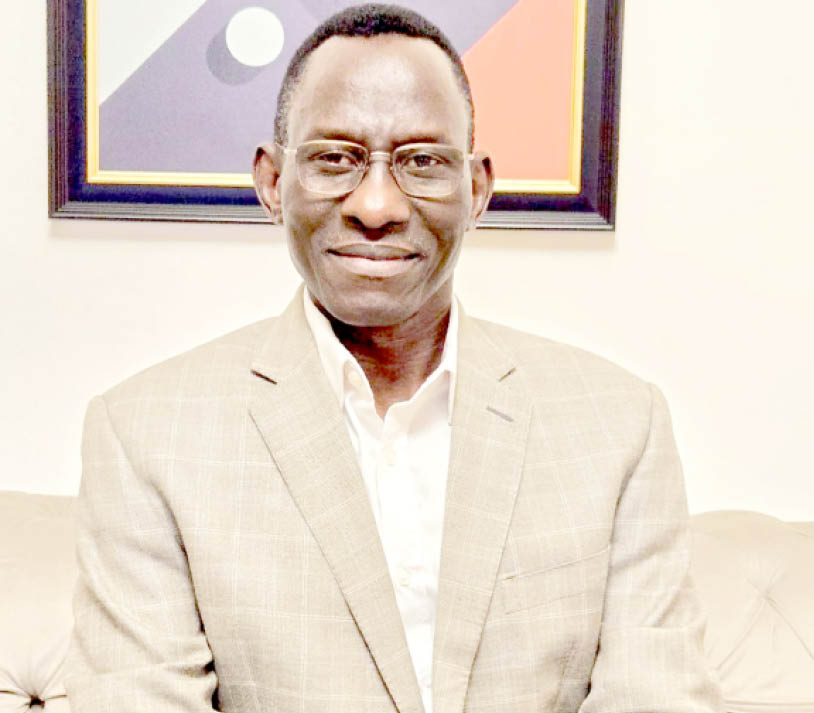General LEO Irabor (rtd), first Vice President, Institute of Physical Assets and Infrastructure Management (IPAIM) in this interview, reviews the impact of infrastructure deficit and project abandonment. Excerpts:
Infrastructure deficit/decay is one of the setbacks to our socio-economic and national development, how do we tackle this hazard?
One of the reasons for infrastructural deficit and decay is that our maintenance culture has not been robustly developed to guarantee a longer lasting infrastructural development. There is no doubt that there is limited infrastructure. But the few that are available have suffered from lack of maintenance. So you find decaying infrastructure lying across the length and breadth of our country.
To address this challenge, we need to institute a mechanism for building higher skills level for maintenance of infrastructures.
Another reason is gap in the awareness of the status of this sector. This is the reason why IPAIM was set up; to close the gap. I believe that creating awareness will help the country increase its speed level for infrastructure maintenance. The value they bring to bear in our socio-economic and national development is immense.
- Tinubu Commissions CNG Buses At Presidential Villa
- OPEC says Chinese economy pulling down oil demand
At IPAIM, we see a need to engage the government – Executive and Legislature – as well as the private sector and general public, on the impact of infrastructural deficit and decay on our wellbeing and what we stand to benefit when we optimise the maintenance of available infrastructures.
In actual fact, infrastructure is the basis for economic growth and development. The more awareness we create in the light of this, the more attention the government gives to infrastructural and assets management in terms of budgeting and resourcing. Additionally, if given the right policy framework, there will be multiplier effects. There would be greater attraction of the investing public and other stakeholders involved in physical assets maintenance and infrastructure provisioning. It would further increase our workforce; I mean the unemployment level will go down while boosting skills acquisition for infrastructure and assets management.
What is your perspective on infrastructure concession, have we adequately explored that option as a country?
Well, the initiative for the concessioning of our infrastructures is a good one, no doubt. However, the essence is to attract private sector participation in infrastructure development. At the moment, there are issues. There are factors that impinge on investment in the sector. One, the necessary guarantees required for investment in that sector, in my view, are below average.
The return on investment in infrastructure is an area that we need to look into such that it will be attractive to investors. It is not necessary that the return on investment will be within a very short time. However, no investor will invest in any sector only for him to lose a good portion of his capital. To that extent, the concessioning initiatives must be robust enough to attract and safeguard investments.
Given the oversight function of the Infrastructure Concession Regulatory Commission (ICRC), is Nigeria still supposed to be deficient in infrastructure provisions?
I believe that the Infrastructure Concession Regulatory Commission (ICRC) is responsible for creating the awareness and ambience, that is, the right operating environment and conditions that will attract investment from the private sector.
ICRC is the agency that should, under normal circumstances, create the right business conditions that will attract the investment to the infrastructural concessioning sector. The policies should be able to give investors some form of assurance and guarantee for returns on investments.
So, with the work that IPAIM is already doing, collaborating with the ICRC, we will bring greater awareness, such that there will be greater interest by the investing public in infrastructure and physical assets management.
At the moment, there are thousands of assets that are abandoned. What workable measures would you prescribe to reverse the trend?
There is no doubt that there are numerous abandoned infrastructural projects across the country, but, like I mentioned earlier, we have had different administrations, and for each political administration, the focus differs. So, to one administration, their focus could be some other sectors. That should not be the right approach.
There must be change and continuity in governance. And so, infrastructure provisioning and maintenance ought to remain a constant across various political regimes. So, the awareness of policy inconsistencies and their impacts on our socioeconomic development will help offset some of the challenges.
It is for that reason that engaging governments at all levels, including the private sector and other interests, becomes essential. Bringing that awareness to them can shore up the imbalance and address the anomaly.
Additionally, budgeting for infrastructure must be consistent. There is a need for us to have rolling plans, such that provisions are made over a period for infrastructural provisioning and assets maintenance. Most times, you will discover that infrastructures are provided but there are no funding arrangements to ensure their through-life maintenance. This is where many of the interventions that we at IPAIM are now having will focus on.
With the right policy framework, priority will be given to budgeting for infrastructure provisioning and maintenance. Thus, the challenges of abandoning projects or non-completion of projects and lack of maintenance of the infrastructures that are already existing, would be a thing of the past. This is the focus of IPAIM.
What is the position of IPAIM on the issue of abandoned assets/infrastructures in the country, as well as project cost inflation?
At IPAIM, we believe that the very sorry state of infrastructure maintenance and related matters can be reversed. IPAIM is working assiduously with the relevant agencies of government to see that not only the awareness is brought to bear, but we also conduct training for different establishments and interested public. Our membership drive is geared towards leveraging the huge gains in the sector for a win-win outcome for all Nigerians.

 Join Daily Trust WhatsApp Community For Quick Access To News and Happenings Around You.
Join Daily Trust WhatsApp Community For Quick Access To News and Happenings Around You.


